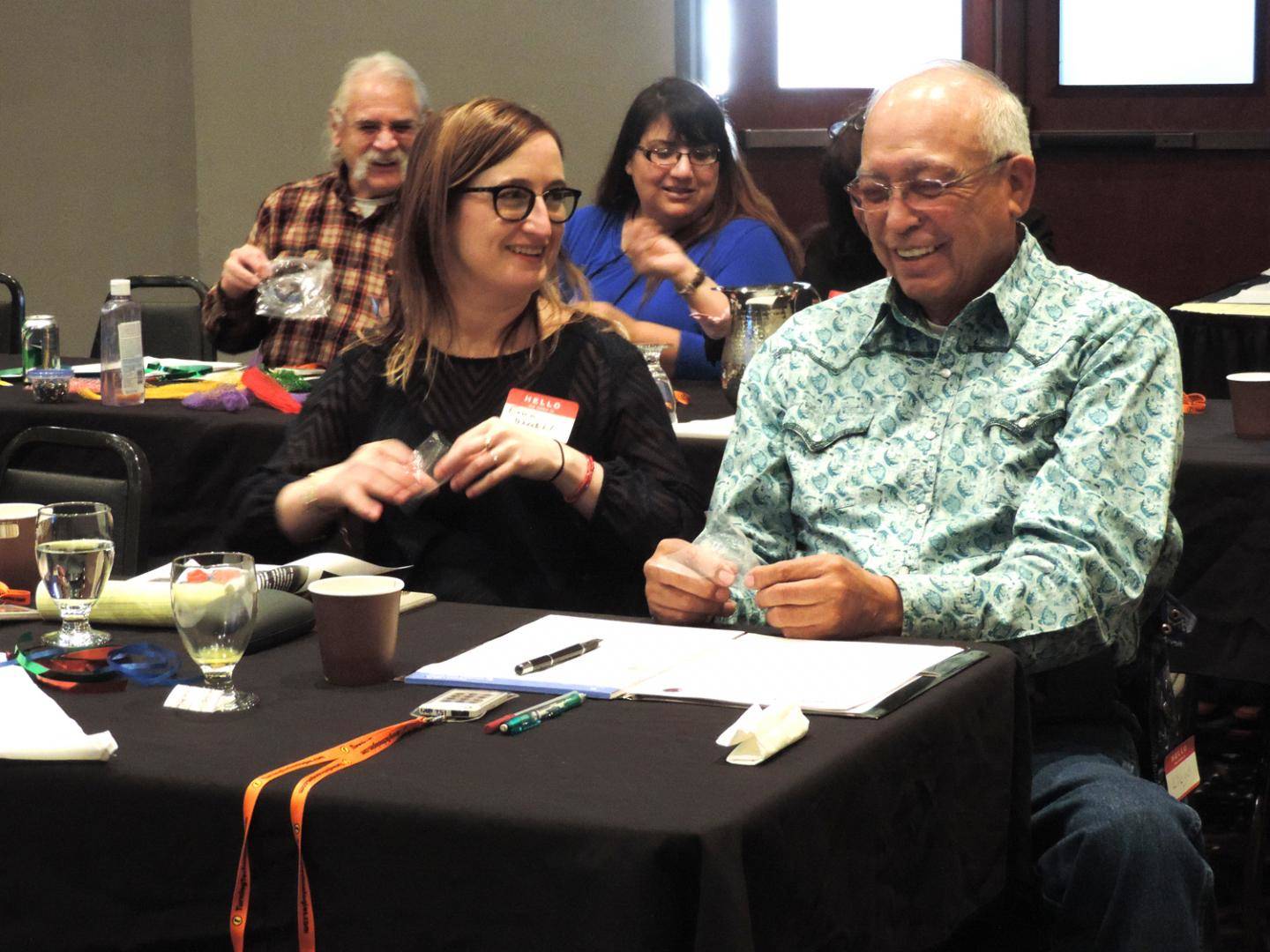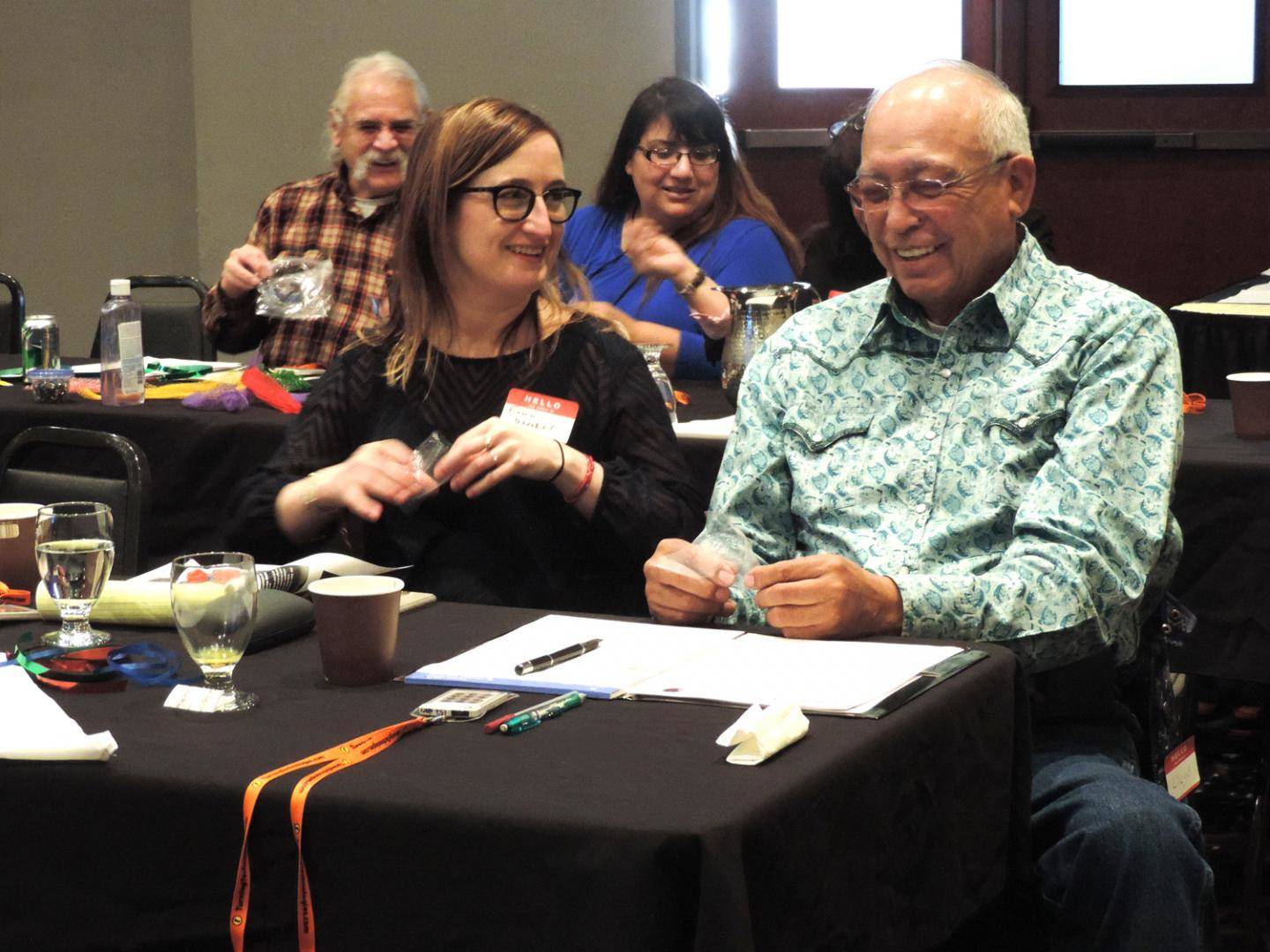
Credit: Erica Woodahl
MISSOULA – The University of Montana and its research partners have earned a $2.1 million grant from the National Institutes of Health to study precision medicine targeted to help Native peoples.
The grant will fund the research of Dr. Erica Woodahl, an associate professor in UM's Department of Biomedical and Pharmaceutical Sciences in the Skaggs School of Pharmacy. Woodahl has worked on precision medicine with tribal communities in Montana for more than a decade.
"Precision medicine moves beyond the one-size-fits-all approach by considering each person's unique genetics, lifestyle and environment when choosing a medical treatment," she said. "While precision medicine can potentially benefit people of all ethnicities, most research studies have been limited to people of European descent."
Woodahl and her colleagues seek to build on existing community and university partnerships with tribal communities in Alaska and Montana to advance policy approaches that support precision medicine research with American Indian and Alaska Native people.
The project will address three complex and important challenges: (1) how precision medicine research may benefit tribal people and how research aligns with tribal health priorities, (2) how to develop flexible, community-responsive approaches to the return of research results to tribal participants and their communities and (3) how to address issues of data stewardship that support the full participation of tribal communities in research.
Woodahl will lead the project along with other lead investigators Vanessa Hiratsuka (Southcentral Foundation in Anchorage, Alaska) and Bert Boyer (Oregon Health Sciences, University in Portland). The project includes community and academic research partners in Alaska, Montana, Oregon and Washington.
At UM, Woodahl and Dr. Elizabeth Putnam, professor and chair of the Department of Biomedical and Pharmaceutical Sciences, have been engaged in a community-academic partnership with the Tribal Health Department of the Confederated Salish and Kootenai Tribes on the Flathead Reservation.
Dr. LeeAnna Muzquiz, medical director of the Tribal Health Department, as well as members of a community advisory board, are actively engaged in the research partnership.
"Knowledge gained from the project will provide a foundation for the implementation of precision medicine with American Indian and Alaska Native communities," Woodahl said.
The research is supported by the National Human Genome Research Institute and the National Institute of General Medical Sciences. The grant is titled "Community-engaged research toward precision medicine with American Indian and Alaska Native people."
###
For more information, visit http://bit.ly/2tPz4eA or http://bit.ly/2FBlRM3, call Woodahl at 406-243-4129 or email [email protected].
Media Contact
Erica Woodahl
[email protected]
406-243-4129
http://www.umt.edu
Original Source
http://bit.ly/2ItOSXI





